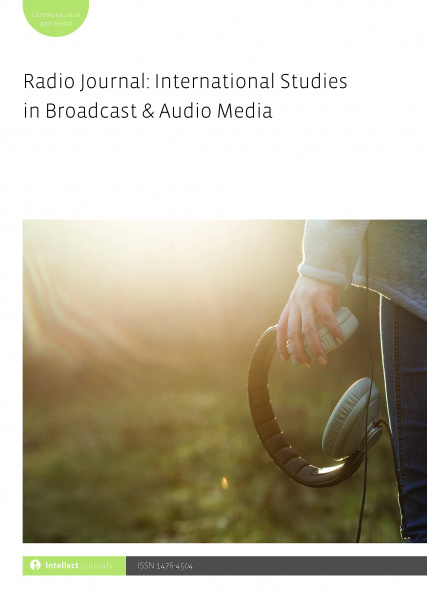
Full text loading...
 , Simon Barber1
, Simon Barber1
Podcasts have become an important part of music reception practices, providing new ways of engaging with reviews and recommendations, artist interviews and popular music histories. This article presents a replicable working methodology that can be applied to study the data associated with podcasts of any genre. In our analysis, we explore approximately 16,000 listener reviews of the Top 50 podcasts in the Apple (UK) music chart in order to discover what it is about music podcasts that draws listeners to regularly engage with their favourite shows. This method, based on unsupervised machine learning algorithms, automates data-scraping for podcast reviews and ratings. We describe and critically reflect on this process in order to understand not only how listeners describe their range of motivations for engagement with music podcasts, but also the limitations of this approach in a media and cultural studies context.

Article metrics loading...

Full text loading...
References


Data & Media loading...

Publication Date:
https://doi.org/10.1386/rjao_00053_1 Published content will be available immediately after check-out or when it is released in case of a pre-order. Please make sure to be logged in to see all available purchase options.